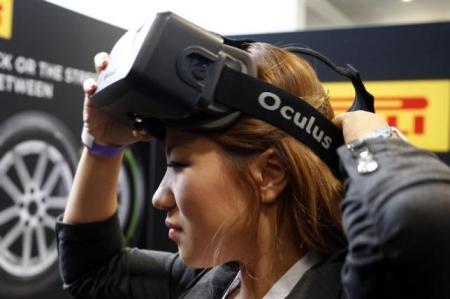Are Virtual Reality Churches the Wave of the Future?

Virtual reality, which can easily allow churches to have global presence and foster diversity and inclusiveness, is far more enabling than live-streaming, which numerous megachurches are currently using to conduct multi-site worship services. So are we going to see a rise of VR churches in the near future as the technology becomes cheaper and more accessible?
"Attend a real church in virtual reality," says the website of a VR church established by Los Angeles, California-based Pastor D.J. Soto and whose mission is "to explore and communicate God through virtual reality, augmented reality, and next generation technologies."
Soto, the owner of Sonata 7 Studios, LLC. which is a film production and virtual reality company, quit his job as a pastor at a branch of his local megachurch in Reading, Pennsylvania, a few years ago with a burden to reach out to people in unusual places. He and his wife even sold their home and most of their belongings and moved with their five young children into a 30-foot trailer.
His journey soon took him to virtual reality as the vehicle of his dream. However, as Pastor Soto spoke about his vision with pastors and church planters, he realized that Christian ministers are not quite ready to try out this new technology, he tells Wired.
"It has been abysmal, to be honest, just trying to connect," Soto is quoted as saying. At times, he wonder is "this the biggest mistake of my life?"
"We haven't stopped trying to connect with churches, but we are wondering if that type of support is further down the road," he adds. "Maybe we need to do a radical tactical shift to support from outside the church and church planting organizations."
The group is going to accelerate plans to create a 501(3)(c), and start a crowdfunding campaign, as he firmly believes that virtual churches can tremendously increase church attendance, particularly among the young and others who feel alienated by real world churches.
According to a 2017 Baylor survey, some 45 percent of Americans already use the internet to access religious and spiritual content.
Wired author Kristen French identifies herself as an atheist but likes the idea of VR churches.
"I stopped going to church at the age of 13," she writes. "But as someone who remains curious about religion, I am, in some ways, Soto's target audience. When I attended a recent service in virtual reality, I was struck by how welcoming and informal it felt. To me, church meant the hushed tones, muted colors, and high tight collars of Sunday best in my youth. Here, the avatars of parishioners—sleek chiseled robots and blocky cartoon humans—came and went throughout the service. Many huddled into the pews, laid out in orderly rows. Others spilled out onto a red carpet that stretched to a small stage in front. The music was thumping."
Some Christian ministers share Soto's belief in this technology, but are treading with more caution.
J. R. Woodward, national director of church planting at V3, is quoted as saying, "I think media used carefully and thoughtfully is really, really helpful. But I think what's most needed today is for Christians to be an embodiment of Christ in particular places and contexts. There's nothing really more transformative than that."
However, Neal Locke, a Presbyterian minister who writes about religion and virtual reality, warns, "The virtual world is a place where identity is fluid," and adds that virtual worlds are often used to seek out people and places that differ from the experience of the users.
In a 2015 Christian Post op-ed, Pastor Christopher Benek, who specializes in theology and technology, predicted that VR tech will benefit the physically disabled and others who are unable to be physically present at a worship service.
"The main impact that VR is going to have on the global church is that it is going to, one-day, enable Christians to easily gather from a variety of places without being in the same physical location. This will enable persons who are homebound, sick, caregivers, without transportation, on vacation, or severely disabled to participate in worship with the larger community of faith without needing to leave the place where they are physically residing," he wrote.
Last year, Roger E. Olson, professor of Christian Theology of Ethics at George W. Truett Theological Seminary of Baylor University, warned that congregations that do not have a physical pastor present during worship services and only watch video streams of pastors preaching, could be a sign of Gnosticism.
"One that comes to my mind, as a Christian theologian, is the question of possible partial Gnosticism — at least the lack of concern about bodies and physical presences."
He continued: "Virtual reality replaces bodily and physical reality. Or the two are confused — as if the difference does not really matter. Can a pastor really 'pastor' (shepherd) a congregation if he or she never is among them? Is there really total commensurability — spiritually — between seeing and hearing a local pastor preach, pray and teach bodily, physically, and seeing and hearing a speaker via satellite feed or internet connection?"





















